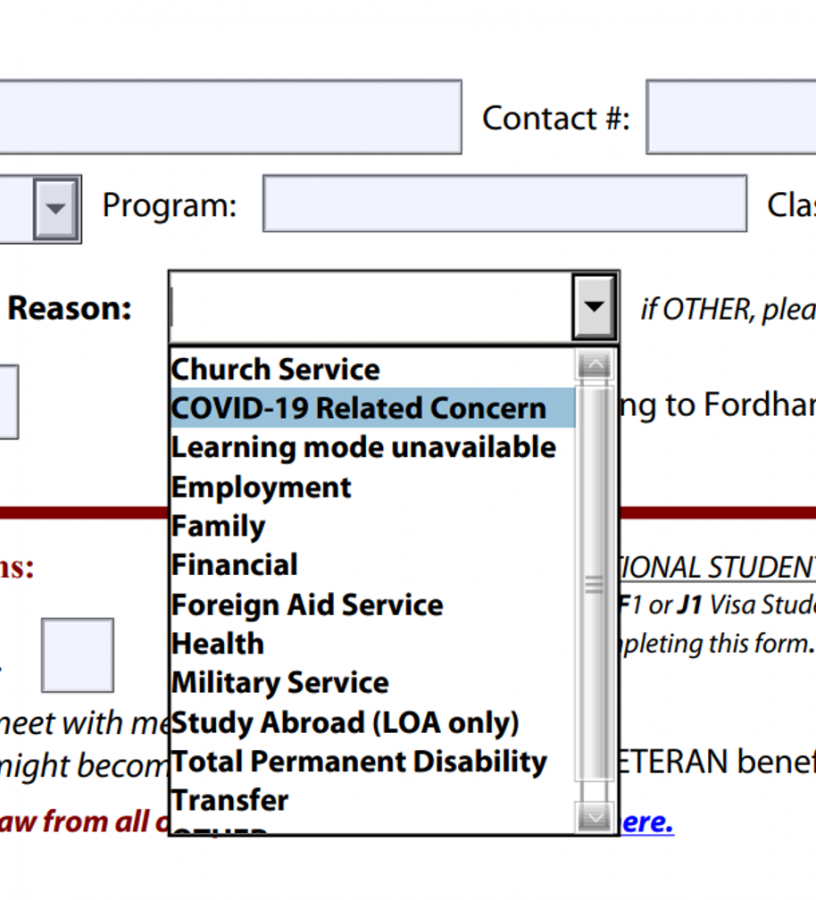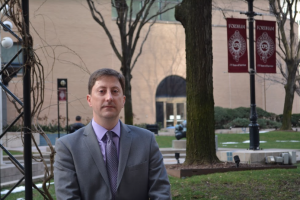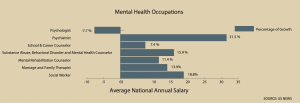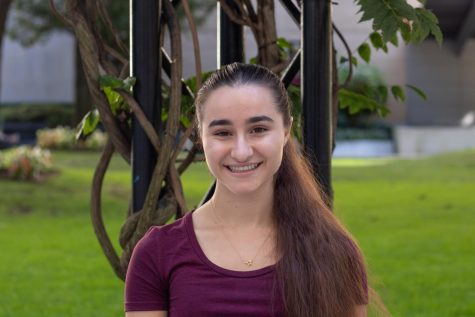Deans Initiate Changes to the Student Leave of Absence Protocol
Two adjustments to the LOA and MLOA processes ensure inclusivity and accommodate COVID-19 circumstances, deans hope
MY.FORDHAM
“COVID-19 Related Concerns” has been added as one of the options on the drop-down list for reasons taking a medical leave.
February 9, 2021
The medical (MLOA) and non-medical leave of absence (LOA) policies are in the process of reexamination by the deans of Fordham College at Lincoln Center (FCLC) and Fordham College at Rose Hill (FCRH) to ensure that the guidelines promote diversity, equity and inclusion.
“This means … asking questions such as ‘does this policy or practice have a differential impact on different groups of students’?” Laura Auricchio, dean of FCLC, said.
At the start of the summer, Fordham administrators put together an action plan “for confronting racism and educating for justice.” Since then, departments within the university have taken steps to diversify their curricula in accordance with Fordham’s anti-racism pledge.
Now, other policies and practices at the university level are in the early stages of being analyzed as well.
The current processes for the MLOA and LOA vary slightly, with the MLOA allowing for the leave to take place either during or at the start of a semester; however, the LOA can only be initiated prior to or following a semester.
“Clearly, this is an enormous undertaking and, as I mentioned, we are only at the initial stages of planning. But it is an undertaking to which we are committed.” Laura Auricchio, dean of FCLC
The MLOA also requires the student to be cleared by the university’s Mental Health and Medical-Related Re-Entry Process, as well as provide documentation verifying their readiness to return.
The LOA does not require a screening prior to returning to the university, but the student must be in good academic standing in order to be eligible for withdrawal.
Auricchio and Maura Mast, dean of FCRH, have begun initiating an approach to review the MLOA and LOA in order to assess whether they are “keeping with current best practices, if they are student-centered, if they are clearly spelled out and widely disseminated, if they are consistent (when appropriate) across schools or other units,” according to Auricchio.
“Clearly, this is an enormous undertaking and, as I mentioned, we are only at the initial stages of planning,” Auricchio said. “But it is an undertaking to which we are committed.”
In part with the approach to assess policies’ impact on diversity, inclusion and equity, the non-medical LOA form has been updated to include “COVID-19 related” as one of the options in the list of reasons for the leave of absence from the drop-down menu.
With the change to the LOA form, students can now request time off, either before or after a semester, for any circumstance brought on by the pandemic.
The coronavirus pandemic has negatively affected students in a variety of ways beyond health and well-being, especially relating to financial instability. Its impact is also disproportionately affecting racial and ethinic minority groups due to unequal access to health care, job stability and housing.
With the change to the LOA form, students can now request time off, either before or after a semester, for any circumstance brought on by the pandemic.
Since the process is in its early stages, there are no other members involved in the reexamination at this time. However, according to Mast, they expect to seek student input in later stages of the process. In addition, reviewing the MLOA policy will be a joint effort with Student Affairs and the University Health Services, as those two offices oversee the MLOA process.
















